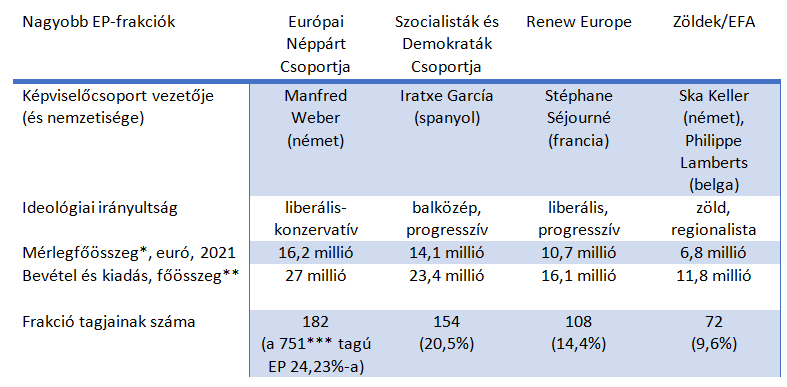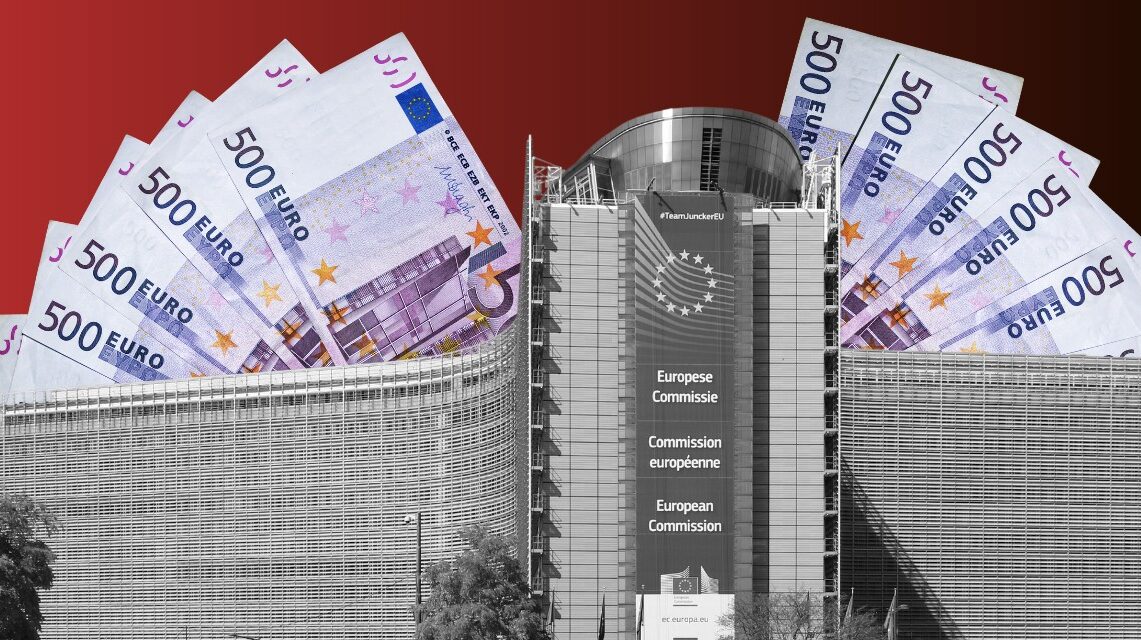Possibilities of budgetary control over the European Union and its institutions and the problem of sharing responsibility in the control system (Part 3)
We have already heard a lot about how rigorously and institutionally the European Union controls the efficient, effective and corruption-free use of EU funds. How the governments of individual states manage the collected public funds is also a daily topic. But few have realized that the budget of the European Union itself is based on public money, and we have little information about how and who controls its use and how possible abuses are sanctioned.
Audit reports, including financial statements and donations from European-level parties and foundations, are submitted to the European Parliament once a year. The grant amounts in the reports cannot be considered final in all cases: they may differ from those actually awarded and paid by the European Parliament, as the audit report is issued before the Parliament approves the decision on the final grant amount.
It is important to note that European political parties and foundations do not qualify as bodies established by the Union in accordance with Article 287(1) of the TFEU, and are therefore not subject to the audit of the Court of Auditors. However, with regard to the amount received from the EU budget, the Court of Auditors - under the conditions set out in Article 287 of the TFEU - has the authority to carry out audits based on the control of records and on-site inspections.
As far as the political groups of the European Parliament are concerned, the individual groups also publish their annual financial statements .
The groups of representatives of the European Parliament are the officially recognized political groups, which are made up of the legislators of the EP, so their legal status differs from that of the European party families. These groups can be built around a European political party (for example, the European People's Party, the Party of European Socialists), or they can represent more than one European party, and they can also belong to national parties and be independent.
The annual report submitted to Parliament by the European People's Party group includes the balance sheet as of December 31, 2021, the income and expenditure statement for the period between January 1, 2021 and December 31, 2021, as well as the annexes to the annual report, on the basis of which the balance sheet total 16,201,654 (approx. 16.2 million) euros, while the total amount of income and expenses for the period was 26,978,509 (approx. 27 million) euros.
The balance sheet and income and expenditure statement of the Group of Socialists and Democrats as of December 31, 2021 (with the annexes to the 2021 report) as a total balance sheet amount of 14,109,684.62 (i.e. more than 14.1 million) euros, as a total amount of income and expenditure for the period It showed EUR 23,412,509.69 (23.4 million).
Relevant data of larger EP representative groups (summary table)

* Balance sheet total: the last, summary line of the EP representative group's balance sheet (included in the annual financial report), which shows the total assets of the faction as a business unit.
** Total expenditure and income: the value of the deficit and the debt.
*** Data for the total number of members of the European Parliament as of January 19, 2022 .
The annual report of the Renew Europe Group (liberal faction) also contains the balance sheet as of December 31, 2021, the statement of income and expenses for the period from January 1, 2021 to December 31, 2021, and the annex to the annual report. In total, the balance sheet total is 10,728,526.62 (i.e. more than 10.7 million) euros, and the total income and expenditure for the period is 16,140,148.41 (approx. 16.1 million) euros based on the report examined by the EP.
For the Greens/EFA Group, the balance sheet total was 6,817,625 euros and the total income and expenditure for the period was 11,818,477 euros, in the case of the European Conservatives and Reformers (ECR) group, in terms of income and expenditure, for information, 8,122,748.03 and 9,987 respectively Amounts of 191.04 euros are included.
Is it possible to clearly separate the division of responsibility during the inspection?
In connection with the financial transparency of the representative groups, the internal audit is by definition carried out by the European Parliament, adding that the work is also supported by the European Court of Auditors, which, as the independent and external auditor of the European Union, is responsible for protecting the interests of EU taxpayers. However, the Luxembourg-based Court of Auditors does not have any substantive legal powers, even if it tries to improve the budget management of the European Commission - and other EU institutions - through its own activities.
At the same time, the main responsibility for budget management rests in principle with the European Commission, which receives roughly four-tenths of all costs spent on the operation of joint institutions. The question arises as to whether it is possible (and to what extent realistic) in such a divided – but still not clearly delineable – system to blur control responsibilities and, in the event of problems, point fingers at each other between individual European bodies and institutions. This also means deciding how exemplary the EU budget control system is for the member states of the community.
Today's power institutions of the European Union must not only maintain the appearance of the effectiveness of financial control, but those who manage the control mechanisms of the system should also operate in the spirit of being able to control and manage the internal processes within their own sphere of responsibility (or authority), and in such a way that thereby implementing financial control within the EU. If the Union wants nothing to get out of hand in the maze of bureaucracy and possible abuses. Because if this perception does not pervade practice, then it cannot fulfill one of the basic functions of the internal institutional system of the European Union.
First part:
Use of public funds in the European Union - problems in control and division of responsibilities
Part 2:
Use of public funds in the European Union - The situation of the most important institutions













